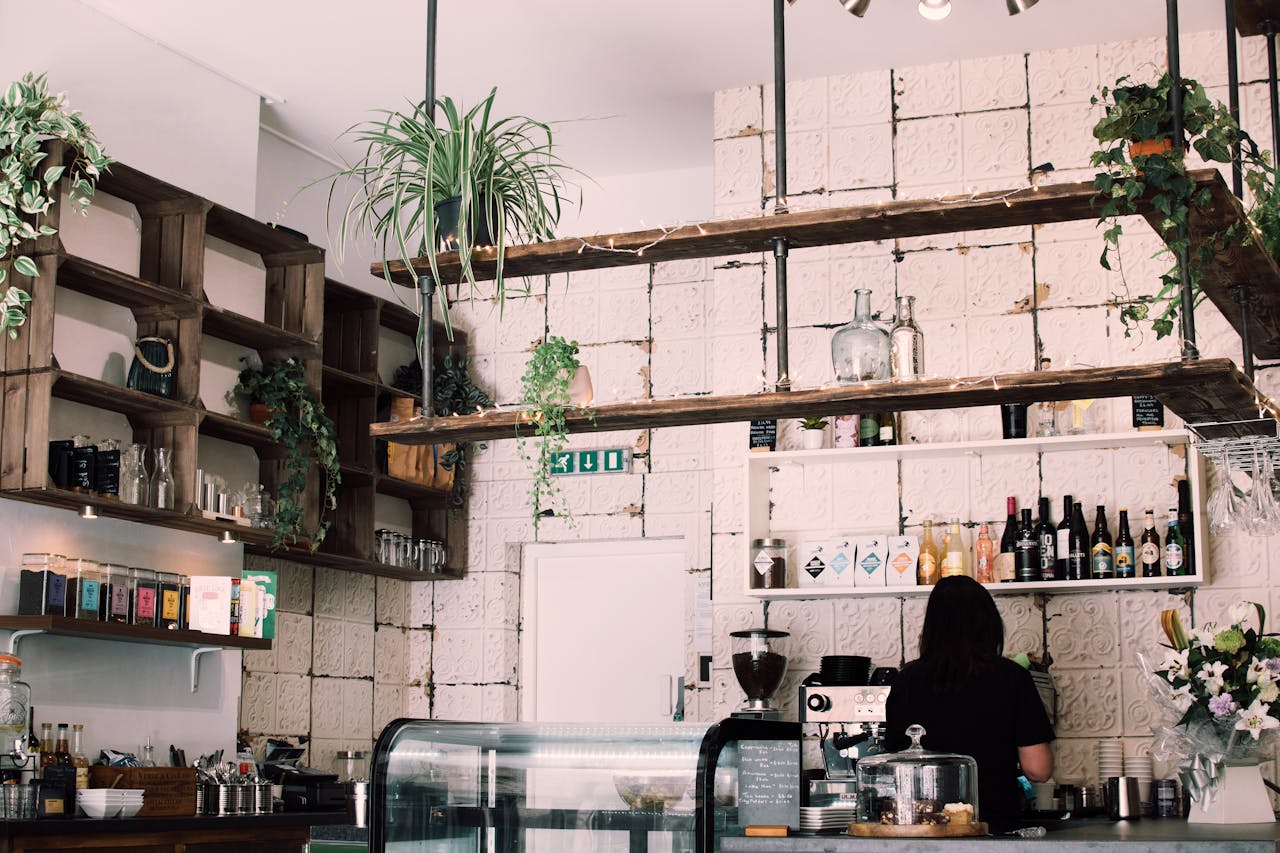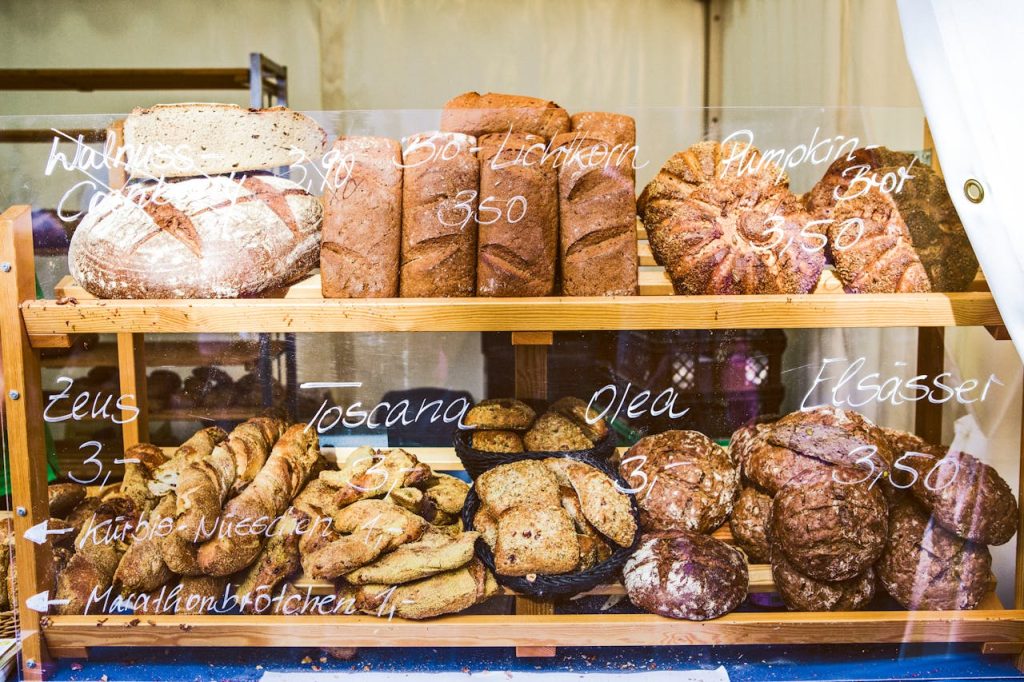
By Bella Zhang November 29, 2024
The baking sector has experienced a large shift towards sustainability. The change is fueled by growing consumer understanding of environmental impact and businesses’ aim to embrace ethical practices. Current entrepreneurs are actively setting up environmentally friendly bakeries, incorporating practices that reduce harm to the environment and attract customers who are environmentally conscious. This article delves into useful advice for environmentally friendly baking methods and perspectives on managing an eco-friendly bakery company.
The Rise of Sustainability in Baking
Sustainability is now a key priority in the food and beverage sector, and bakeries are also embracing this trend. Due to increasing worry about climate change, customers are now favoring companies that share their eco-friendly beliefs. A Nielsen report pointed out that 73% of consumers worldwide are ready to spend extra on sustainable products, with millennials and Gen Z at the forefront of this movement. In the US, there is a high demand for eco-friendly baking practices, with customers looking for businesses that show commitment to the environment.
For entrepreneurs, this trend presents an opportunity to differentiate their bakery business. Eco-friendly bakeries not only attract a loyal customer base but also create long-term operational savings through energy efficiency and waste reduction. Furthermore, adopting sustainable practices contributes to a healthier environment, ensuring that future generations can enjoy the same access to resources and ingredients that we have today.
Sourcing Ingredients Responsibly
Responsible sourcing is at the heart of sustainable bakery entrepreneurship. Choosing organic, locally sourced, and fair-trade ingredients can significantly reduce the environmental impact of your bakery. Organic farming minimizes the use of synthetic pesticides and fertilizers, preserving soil health and reducing water pollution. Additionally, sourcing locally reduces transportation emissions, supports nearby farmers, and strengthens community ties.
Fair-trade certifications guarantee that suppliers follow ethical labor practices, offering fair pay and safe work environments to employees. Bakers can improve sustainability by adding seasonal produce to their recipes. Ingredients that are in season are more fresh, use less energy to grow, and help the local agricultural economy.
For example, using fresh berries during the summer and pumpkins in the fall not only adds variety to your menu but also aligns your bakery with environmentally friendly baking principles. When sourcing ingredients, look for reliable certifications like USDA Organic, Non-GMO Project Verified, and Fair Trade Certified to ensure you’re supporting sustainable agricultural practices.

Energy-Efficient Bakery Operations
Running a bakery involves substantial energy use, from ovens and mixers to refrigeration units. Implementing energy-efficient practices is a key aspect of a green bakery business. Investing in energy-efficient appliances, such as convection ovens and refrigerators with Energy Star ratings, can significantly reduce your bakery’s energy consumption.
Many bakeries are also exploring renewable energy sources. Installing solar panels, for example, not only lowers electricity bills but also showcases a commitment to sustainability. Some bakeries, like King Arthur Baking Company, have adopted renewable energy systems, proving that eco-friendly initiatives can be scalable even for small businesses.
Moreover, planning when to conduct baking activities strategically can enhance energy efficiency. Cooking in multiple rounds saves energy by limiting the necessity of constantly heating up ovens. Minor adjustments such as transitioning to LED lighting and properly insulating your bakery to regulate temperatures can improve energy efficiency even more. By following these measures, bakery owners who care about the environment can reduce their carbon footprint significantly without compromising operational excellence.
Minimizing Waste: From Ingredients to Packaging
Waste management is a major challenge for bakeries, but there are effective strategies to minimize it. Accurate inventory tracking is essential to avoid overordering ingredients, which often leads to unnecessary waste. By using software tools for inventory management, bakers can predict demand and reduce spoilage.
Creative upcycling is another way to reduce food waste. Unused bread can be turned into bread crumbs, croutons, or bread pudding, while leftover fruit can be used to make jams or fillings. Another great method to prevent leftovers from going to landfills is by composting organic waste.
Sustainable packaging is equally important. Plastic wrappers and single-use containers are significant contributors to environmental degradation. Instead, bakeries can adopt biodegradable, compostable, or reusable packaging materials. For instance, using paper bags made from recycled materials or offering discounts to customers who bring reusable containers can reduce waste while engaging customers in eco-friendly practices.
Moreover, donating unsold baked goods to local food banks or charities is a win-win solution. It not only prevents waste but also supports those in need, enhancing your bakery’s reputation as a community-focused business.
Sustainable Baking Techniques
Sustainable baking practices involve thoughtful adjustments to traditional methods. One impactful change is incorporating plant-based ingredients, as they generally have a lower environmental footprint than animal-based products. For example, aquafaba (chickpea water) can replace eggs in many recipes, and non-dairy milk options like almond or oat milk are excellent substitutes for cow’s milk.
Another critical aspect is reducing water usage. Installing water-saving devices, such as low-flow faucets, can help conserve water in the kitchen. Bakers can also reuse water from certain processes, like rinsing fruits, for cleaning purposes.
Batch baking involves baking multiple items simultaneously in order to optimize oven productivity. This speeds up production while also saving energy. Furthermore, trying out low-temperature baking for specific items could decrease energy usage without sacrificing quality. Implementing these eco-friendly baking methods guarantees that your bakery functions in a sustainable manner while maintaining taste and innovation.
Creating a Green Bakery Culture
A truly sustainable bakery is built on a foundation of eco-conscious values that permeate every aspect of the business. Educating staff about sustainable baking practices is essential to ensure consistency in your green efforts. Regular training sessions on waste reduction, energy efficiency, and responsible sourcing empower employees to take ownership of sustainability goals.
Getting customers involved in your bakery’s environmentally friendly mission can also increase loyalty. For example, by providing loyalty rewards to customers who bring their own coffee cups or take part in recycling initiatives, a feeling of community and mutual responsibility is encouraged. Another option to increase your influence is to conduct workshops on eco-friendly baking methods or collaborate with nearby environmental groups for events.
Cultivating a green bakery culture also involves transparency. Sharing your sustainability goals and progress with customers, whether through social media updates or in-store displays, builds trust and encourages others to adopt similar practices.

Marketing Your Eco-Friendly Bakery
Marketing is a crucial tool for promoting your bakery’s sustainability efforts. Today’s consumers are drawn to businesses that share authentic stories about their environmental impact. Social media platforms like Instagram and Facebook are ideal for showcasing your green initiatives. Share behind-the-scenes photos of your baking process, highlight partnerships with local suppliers, and celebrate milestones, such as achieving zero waste.
Certifications like USDA Organic or Rainforest Alliance not only validate your efforts but also serve as powerful marketing tools. Displaying these certifications prominently in your store or on your website assures customers that your bakery meets high sustainability standards.
Partnering with other environmentally conscious companies can also boost your visibility. Collaborating with eco-friendly coffee roasters, such as, can lead to mutually beneficial chances to appeal to customers with similar values. Moreover, engaging in community activities such as farmers’ markets provides an opportunity to interact with nearby customers who prioritize sustainable methods.
Lastly, loyalty programs centered around sustainability—such as discounts for bringing reusable bags or participating in recycling drives—can incentivize customers to engage with your eco-friendly bakery more frequently.
Conclusion
Eco-friendly bakeries represent a harmonious blend of tradition, innovation, and environmental responsibility. By adopting sustainable baking practices, modern entrepreneurs can create a positive impact on the planet while delivering high-quality products that resonate with consumers. From sourcing responsibly and minimizing waste to fostering a green culture and leveraging effective marketing, every step contributes to a bakery’s long-term success and sustainability.
As the baking industry changes, the significance of sustainability will increase. For entrepreneurs, adopting eco-friendly baking practices is not only a moral decision but also a savvy business move. By embracing sustainability, bakeries can take the lead in promoting a more environmentally friendly and healthier future for everyone.